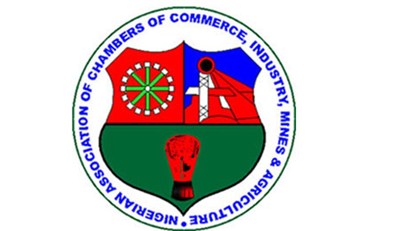The Nigerian Association of Chambers of Commerce, Industry Mines and Agriculture (NACCIMA) has advocated improved relations among stakeholders in the nation’s real sector value chain as well as sustained infrastructural development as part of efforts to make the nation’s business environment attractive for investments.
According to NACCIMA, the Nigerian economy and business environment is a very attractive one, there is a need for government and private sector operators to ensure that they partner for its development by ensuring that all basic infrastructure for a good environment are in place while private sector operators must be good corporate citizens by fulfilling their obligations to government and the community in which they operate.
Speaking during a paper presentation on the operating economy, business environment and challenges of communication, National President, NACCIMA, Bassey Edem explained that nation’s business environment is experiencing challenges across the spectrum of infrastructure and utilities, regulatory services, business development support and security.
He added that business development support in Nigeria is not where it should be considering the number of Micro Small and Medium Enterprises (MSMEs) that would have gone beyond their current level if the country has a good support system, stating that the support system put up by government is yet to translate into economic growth as a lot of players are still yearning for more support system that would help them mitigate the harsh challenge posed by the dearth of Infrastructure.
Speaking on infrastructure, Edem said, “Infrastructure is the pivotal frame on which a strong national growth structure is maintained therefore, any nation that wishes to accomplish any significant economic development must necessarily invest more on the provision and maintenance of basic infrastructural facilities.
“A healthy business environment can be essential for growth and poverty reduction and a prerequisite for trade and competitiveness. A good Infrastructure contributes to economic development by increasing productivity and providing amenities which enhance the quality of life. It is a common knowledge that Nigeria is facing acute shortage of infrastructural facilities, and this constitutes a negative impact on development and empowerment of the country and her people. All over the world, infrastructural development is the engine that drives the economic and technological growth in all ramifications.”
On measures to improve infrastructure deficit, he said the nation should partner with appropriate private institutions to devise a formidable process of attaining vivid infrastructure development in the basic sector that will contribute to poverty alleviation, create employment and position the country among prominent nations of the world.
While government continues to unveil reforms, Edem explained that governments create the rules and frameworks in which businesses are able to compete against each other.
“From time to time the government will change these rules and frameworks forcing businesses to change the way they operate. That goes to amplify the correlations of how businesses are keenly affected by government policies.
“A regulation is supposed to effect some improvements on businesses and job creation and with a resultant increase in the standard of living.
“However, government regulations which most times are inconsistent, have been the banes of business growth in Nigeria as a result of several factors which stem from taxes to the multiplicity enforcers from different arm of government.
Creating an active business require effective communication practices in the business environment. Poor communication affects effectiveness and cohesiveness; reduces morale and decreases innovation among players in the environment.
“It usually creates opportunity for ineffective advocacy and can lead to bad policies that would affect businesses and reduce productivity in the sector. Awareness of such problems in communication is the first step to solving them,” he added.
